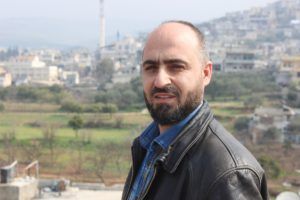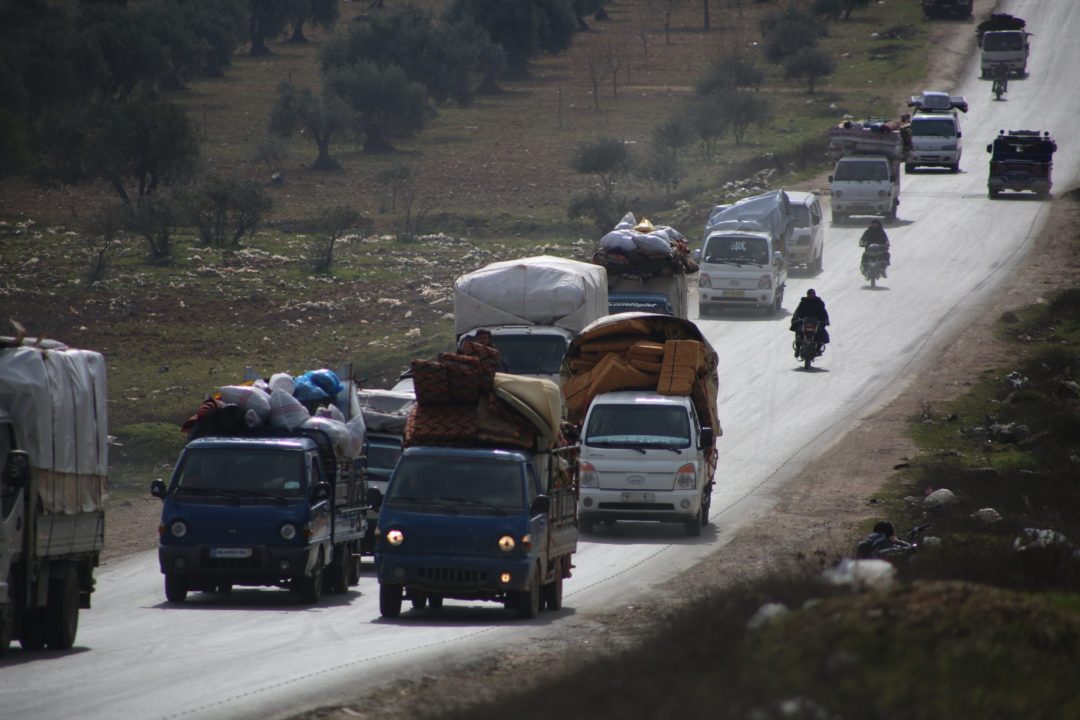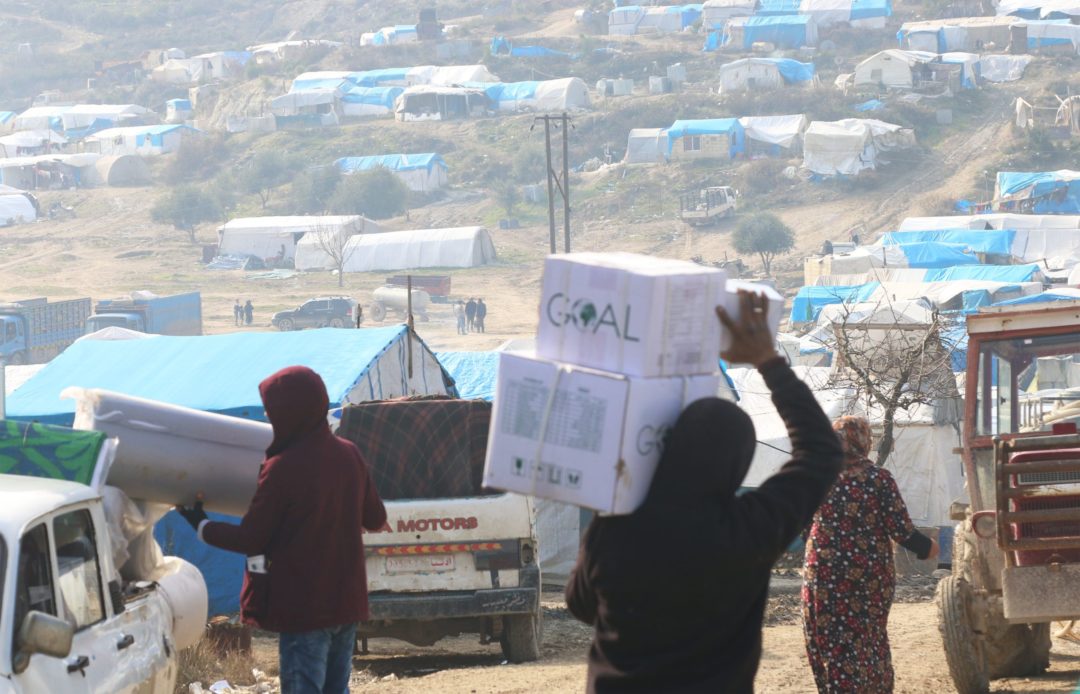 Blogs
Blogs
August 18, 2020 • 5 min read
"The desire to help, and our human duty, require us to continue our work without tiredness or boredom; to work during holidays, work under pressure and work in an atmosphere of oppression and sadness. You must be an ointment for people’s wounds."
Okpah works for GOAL Syria as a Cargo Officer and knows more than most the heartache and devastation experienced by millions in Syria who have suffered due to the nine-year conflict.
“My passion for humanitarian work and my desire to support those who are in need keeps me going in these hard times,” says the 32-year-old father of three.
Okpah’s own displacement
Okpah and his family have had to flee home many times in the past year as they tried to outpace the debilitating bombardments that became a constant of daily life in northwest Syria. The pain of his family’s displacement peaked last December as he sought safe shelter for his wife and young children in northern Idleb province.

GOAL Cargo Officer, Okpah, has been displaced with his family multiple times while working in the field.
“I cannot forget the scenes of people we saw with disabilities and the elderly trying to survive in the miserable camps we passed through, in vehicles that formed kilometres-long line. Such scenes would sometimes make me forget about the suffering my family and relatives have been through,” Okpah adds.
“We were deeply saddened, seeing families that were stranded everywhere, convoys of vehicles heading into the unknown accompanied by the tears of children and women,” he remembers.
Like many others of his generation, Okpah lost a close relative to the conflict in Syria, which marked its 9th anniversary in March.
Okpah and his family were able to return briefly to their village in southern Idleb province after their displacements in May, August and October last year. When they joined the hundreds of thousands of other families seeking to escape the escalation of conflict in December 2019, however, they knew that they would not be able to go back home, even to collect their belongings.
The reality in north-west Syria
Finding refuge in the northern areas, already hosting nearly a million displaced people by January of this year, was proving impossible. Soon after arriving in the town of Salqin in northern Idleb, over 100 kilometres from their home, they realised that they would have to seek new shelter again.
“We were just trying to have a new lease on life, in a safe place where we could heal our deep wounds and distance our children from the fear,” Okpah explains. All they could find nearby was a small brick room in an informal settlement in Deir Hassan village that didn’t have a roof. The village, a mere 10 kilometres from the Bab-Al Hawa border crossing with Turkey, had a population of a few thousand before the war. According to data provided by the UNHCR, the UN’s Refugee Agency, Deir Hassan hosted more than 120,000 displaced people across 95 informal settlement sites in January 2020.

The largest wave of displacement due to the Syrian conflict took place between December 2019 and February 2020.
The informal settlements in and around the village of Deir Hassan are only the tip of the iceberg, however. By January, the 484 informal settlement sites stretching through Idleb province’s northern districts were hosting a displaced population of almost 700,000, the majority of which were women and children. The 32 planned camps in Idleb had become home to another 70,000 individuals. While GOAL and other humanitarian organizations on the ground strive tirelessly to serve the displaced and host communities of northern Idleb, needs far surpass the assistance that is available.
Okpah’s family were among the fortunate few able to find a shelter that could provide at least a little protection. But they had to use all of their savings to replace the plastic sheets that covered the small brick house with material that could help withstand the extreme cold that gripped the region in the winter. Many others were not so lucky.

A GOAL non-food item kits distribution in IDP camps in Northwestern Syria in February 2019.
Tarek’s experience of displacement
Between January and March 2020 the harsh winter conditions led to the deaths of several displaced children whose families were seeking shelter in the overcrowded camps and informal settlements of northwest Syria.
Tarek, who leads one of GOAL’s emergency response field teams, heard the news of the deaths of two young displaced girls February. “These children died because of the cold. Is there such oppression?” he asks, trying to restrain his anger and frustration. “I returned home that day and collapsed. I have a little girl who is all my world. Fear for her and for my family and brothers has become always present in my mind,” he continues.
“Whoever lives in Idleb today are in a continuous struggle to hold onto land and to secure safe shelter for children,” Tarek adds.
In addition to working with GOAL to support displaced communities, Tarek, as a member of the host community of Harim’s Armanaz sub-district, has frequently welcomed families into his home who had escaped the escalation of conflict in the southern regions of Idleb. But he fears he may have to flee himself soon. “I am fully aware of the harshness and fear of this word, ‘displaced,’” he notes wearily.
“We listen to the stories of the displaced people we work with every day. Many are still feeling huge sadness at having had to flee their lifelong homes, of the memories they left behind. Their hearts are full of longing for home, and the fear of what the future might bring is so clear in their voices as they talk.
“Finding a shelter for the 18 people in my extended family occupies my thinking constantly, but my duty and my sense of responsibility push me to do more and more in order to deliver assistance to those who need it.”
“I feel proud of my work with GOAL. Feeling the suffering of others is something we experience daily. The desire to help requires us to work hard …. during holidays, under pressure and in an atmosphere of oppression and sadness.”
*Some names in this story have been changed.
